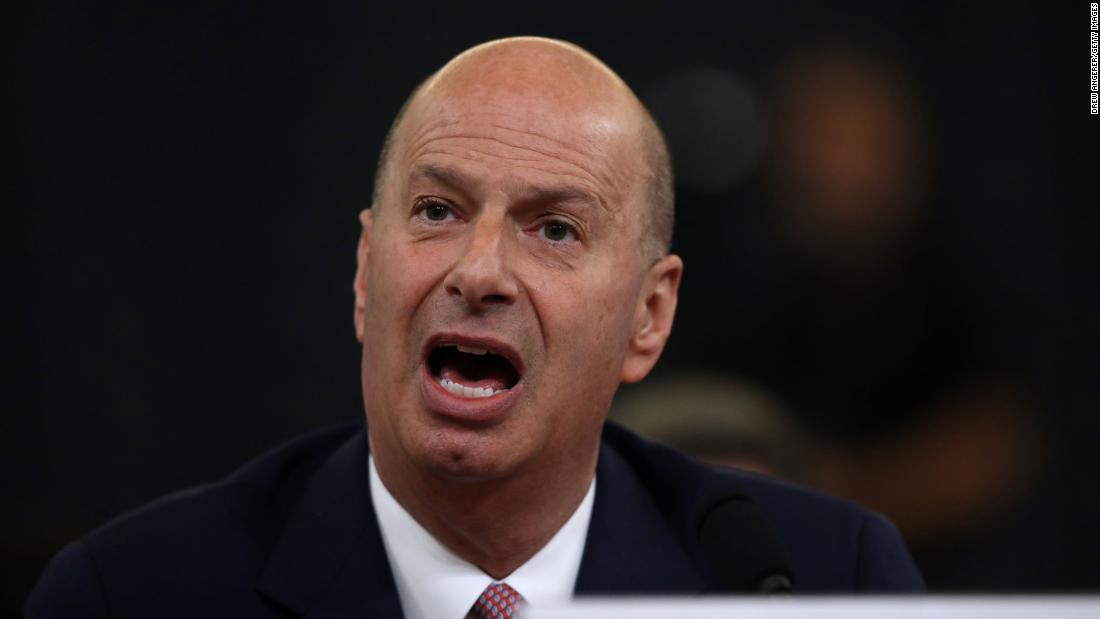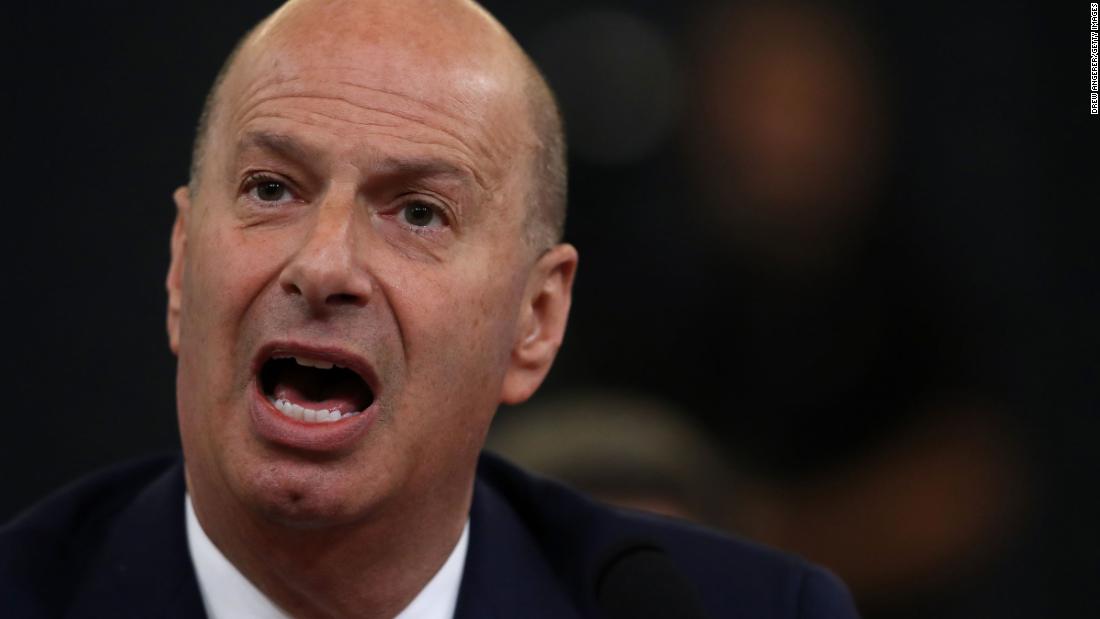[ad_1]

Sondland, a political appointee and hotel magnate with no background in government before joining the Trump administration, may have just given Democrats the most damning evidence so far in the inquiry. Rep. Adam Schiff, the California Democrat who’s the chairman of the Intelligence Committee, called Sondland’s testimony “a seminal moment in our investigation.”
Sondland recounted several conversations between himself and Trump about Ukraine opening two investigations: one into Burisma, a company where former Vice President Joe Biden’s son was on the board, and another into conspiracies about Ukrainian meddling in the 2016 US election.
Up to this point, a key Republican argument has been that none of the witnesses spoke directly with Trump and they offered only secondhand information. Sondland’s testimony about his many conversations with Trump on the matter are crucial to Democrats countering that talking point.
While Sondland said Trump had never expressly told him that US military assistance was contingent on Ukraine announcing investigations into Burisma and the 2016 election, the ambassador said he was “under the impression that, absolutely, it was contingent.”
‘Everyone knew’ about the quid pro quo
“I know that members of this committee frequently frame these complicated issues in the form of a simple question: Was there a quid pro quo?” Sondland said. “As I testified previously, with regard to the requested White House call and the White House meeting, the answer is yes.”
Sondland later said, “Everyone was in the loop. It was no secret.”
These new comments corroborate testimony from other witnesses and contradict Trump, who has said all along, and repeated Wednesday, that there was no quid pro quo with Ukraine.
But Sondland didn’t go as far as some of the other witnesses. He said Trump withheld a White House invitation from the new Ukrainian President, Volodymyr Zelensky, until Zelensky announced the investigations. Other witnesses testified that US military assistance was also part of the quid pro quo, but Sondland said Trump never mentioned the foreign aid component.
Sondland implicated Pence, Pompeo and Mulvaney
Republicans have argued that Giuliani could have been running a shadow foreign policy without the involvement or knowledge of other senior White House and State Department officials, but Sondland contradicted that several times in his testimony.
He said “everyone” in the State Department was aware. He also implicated key White House officials, including Vice President Mike Pence, Secretary of State Mike Pompeo and acting White House chief of staff Mick Mulvaney, who also directs the Office of Management and Budget.
Sondland testified that Pompeo was directing Volker to communicate with Giuliani “even as late as September 24 of this year.”
“Look, we tried our best to fix the problem while keeping the State Department and the (National Security Council) closely appraised of the challenges we faced,” Sondland said.
Sondland also testified that he had told Pence he had “concerns that the delay in (military) aid had become tied to the issue of investigations” before Pence had a meeting with Zelensky in Warsaw, Poland, on September 1, implying Pence was aware of the “investigations” in the first place.
These comments, and emails that Sondland described for the committee, placed a new batch of top Trump officials at the center of the scandal. In statements Wednesday, representatives for Pence and Perry disputed Sondland’s testimony and maintained they didn’t do anything wrong. A Pompeo spokeswoman said some of Sondland’s comments about the secretary of state were “flat out false.”
Splitting hairs over ‘Biden’ versus ‘Burisma’
Under aggressive questioning from Democrats, Sondland refused to say he realized that Trump was asking Ukraine to investigate the Bidens. He wouldn’t go there. Instead, he said he knew only that Trump and Giuliani wanted Zelensky to probe Burisma.
“With 20/20 hindsight, now that we have the transcript of the call, the Bidens were clearly mentioned on the call,” Sondland said, referring to Trump’s July 25 phone call with Zelensky, where he mentioned the Bidens by name. “But I wasn’t making the connection with the Bidens.”
But it’s difficult to take Sondland’s explanation at face value. While Burisma was being discussed, Giuliani went on TV and posted online about the need to investigate Biden. (Sondland said he didn’t see any of that.) The explanation requires viewers to believe that Sondland never asked why Trump cared so much about a random energy company in Ukraine.
The ‘investigations’ were really about politics
During the hearing, Sondland undercut a key Trump defense and simultaneously confirmed a claim from the whistleblower complaint that triggered the impeachment inquiry.
Zelensky “had to announce the investigations,” Sondland said, referring to the probes into Biden’s family and the 2016 election. “He didn’t actually have to do them, as I understood it.”
Legal experts previously told CNN that this is a critical distinction. Most legitimate investigations are done in secret, so as not to tip off the supposed criminals. But the intense focus on securing a public announcement from Zelensky demonstrates that the scheme was really designed to maximize the political benefit to Trump, instead of a good-faith effort to investigate corruption.
[ad_2]
Source link

